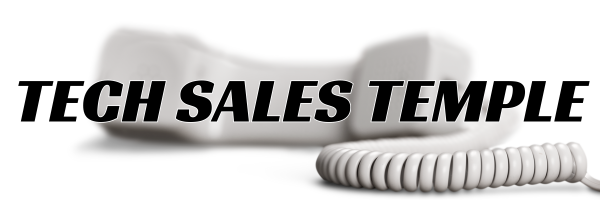The Ultimate Guide to Tech Sales Career Paths [2025 Edition]

Thinking about a career in tech sales – or already in the game and wondering what’s next?
You’re not alone. This field is full of titles, paths, pivots and shiny promises. It’s exciting, chaotic, and confusing as hell.
This guide is here to fix that.
We’ll walk through the major roles, career ladders, and transitions that make up the world of tech sales – from SDR to CRO, from Customer Success to Sales Specialist, from technical presales to people leadership.
No fluff. No fake-glossy „follow your dreams“ BS.
Just clear explanations, honest takes, and a view into what’s actually possible in this career – and how to get there.
Think of this guide as your map.
Not the kind that tells you exactly where to go – but the kind that makes sure you don’t fall off a cliff because someone on LinkedIn told you to go “Enterprise AE in 18 months.”

📚 What You’ll Find in This Guide
- The 4 main paths in tech sales (Sales, CS, SE, Management)
- How they actually work in practice (not just job titles)
- Specialized & hybrid roles you might not have heard of
- Where Business Development and Marketing fit in
- How to think about your next step – wherever you are right now
⚡️ The 4 Core Tech Sales Career Paths
These are the four big pillars:
- Customer Success Management (CSM)
- Sales
- Solution Engineering (SE)
- Management
Each of them leads somewhere different. Each comes with trade-offs.
🧍 Path 1: Customer Success Management (CSM)
Not every sales career is about closing. Some are about keeping the promise after the deal is done.
Welcome to the world of Customer Success – the people who make sure the customer actually gets what they paid for (and maybe renews it for three years).
CS isn’t about “support.” It’s proactive, strategic, and revenue-relevant. Good CSMs know the customer’s org better than the customer does. They build trust, drive product adoption, and surface upsell ops – all without sounding like they’re trying to close.
Typical Roles:
- CS Associate – Learning the ropes, supporting a CSM, and trying not to get overwhelmed by onboarding decks.
- CSM – Owns customer relationships, runs QBRs, catches churn signals, drives adoption.
- Enterprise CSM – Works with large orgs, navigates complexity, deals with politics and renewal targets.
Who this is for:
- People who care about long-term outcomes
- Those who like relationships over quotas
- Strong communicators with empathy and process thinking
Keep in mind:
- Often lower upside than sales, but more stability
- Bad orgs treat CS like support → ask how CS is measured
💼 Path 2: Sales
Where the money is – and where the pressure lives.
This is the core revenue engine. You prospect, pitch, negotiate, close. Then do it again next quarter.
The highs are high. The lows are lonely. But for many, it’s the most direct way to learn business, build resilience, and earn serious money.
Typical Roles:
- SDR / BDR – Cold outreach, qualification, calendar-filling. The grind phase.
- SMB AE – Closing small deals fast. Volume game.
- Mid-Market AE – Bigger accounts, more stakeholders, more process.
- Enterprise AE – Complex sales, long cycles, big paychecks (sometimes).
- Global AE – Multi-country deals, international exposure, C-level relationships.
Who this is for:
- Competitive people who love the game
- Strong communicators who can handle rejection
- Those who want uncapped earnings
Keep in mind:
- Burnout risk is real
- Culture varies – good leadership matters
- It’s not about being extroverted, it’s about being structured
🧰 Path 3: Solution Engineering (SE)
Pre-sales meets tech meets storytelling.
SEs are the technical backbone of the sales motion. They demo, solution, unblock, and de-risk. When a deal’s big, complex, or technical – the SE is the closer behind the closer.
Typical Roles:
- Associate SE – Supporting demos, learning architecture, taking notes.
- SE – Owns product positioning in deals, custom demos, integrations.
- Enterprise SE – Works on high-stakes accounts with advanced requirements.
- Principal SE – Leads SE strategy, mentors team, shapes product feedback loop.
Who this is for:
- Tech-savvy communicators
- People who love whiteboards and solving puzzles
- Those who want to stay close to product without coding full-time
Keep in mind:
- Fewer roles than in sales or CS
- Less public praise, but high internal value
- Good SEs are rare and often irreplaceable
🏛️ Path 4: Management
From individual contributor to people leader: different game, different rules.
Management isn’t a “promotion”. It’s a new job. One that requires different skills, different pacing, and a new definition of success.
Typical Roles:
- Team Lead – Player-coach. First step into people leadership.
- Manager – Runs a team. Owns pipeline, forecast, morale.
- Director – Bigger org, strategic focus, cross-functional work.
- RVP / SVP – Regional or vertical leader. Operates at scale.
- CRO – Owns all revenue. Full accountability. Big seat.
Who this is for:
- Coaches, not just players
- People who enjoy systems, not just execution
- Those who can let go of deals and grow others
Keep in mind:
- Less glory, more meetings
- Not for everyone – and that’s okay
- Great ICs shouldn’t feel pressured to go “up”
💰 Specialized Roles in Tech Sales
Not every path is linear. Some roles sit outside the big four, but are just as impactful.
- Sales Specialist – Deep knowledge in a product or industry. Supports AEs.
- Channel Account Manager – Works with partners/resellers. Indirect sales.
- Account Manager – Owns existing customers, renewals, upsells.
These roles are great if you want to go deep, build relationships, or operate cross-functionally.
📢 Business Development
Entry-level meets strategy. Your foot in the door.
Business Development is often where sales careers start. You learn the market, your ICP, how to handle rejection, and how to communicate value.
From there, paths diverge:
- Into AE roles
- Into marketing or partnerships
- Or deeper into strategy and growth
Great BDRs are curious, disciplined, and low-ego.
💬 Marketing in Tech Sales
Marketing isn’t just about pretty slides. Done right, it’s the fuel that keeps the sales engine running.
Marketing roles in tech sales help shape the story, build the pipeline, and support sales with air cover.
- Marketing Specialist – Executes campaigns. Gets hands dirty.
- Product Marketing Manager – Translates product into value. Equips sales.
- Demand Gen – Owns pipeline creation. Digital tactics + analytics.
- Content Marketing – Creates content that converts (if done well).
Want to stay close to sales, but don’t want a quota? Marketing might be your lane.
✅ Final Thoughts: Build your path
There is no “one” career in tech sales. There are many. And all of them are valid.
The key is to understand what you value – money, impact, relationships, leadership, freedom – and choose accordingly.
Whatever your next step is, just know:
- You don’t have to follow someone else’s playbook
- You’re allowed to change direction
- You’re allowed to stay where you are
Tech Sales Temple exists to help you navigate these choices with clarity.
🏛️ Want to go deeper? Join the Tech Sales Temple Forum and connect with others on the path.
📢 Subscribe to the newsletter for bi-weekly content like this: no fluff, no spam, just real insight from people who’ve done it.
